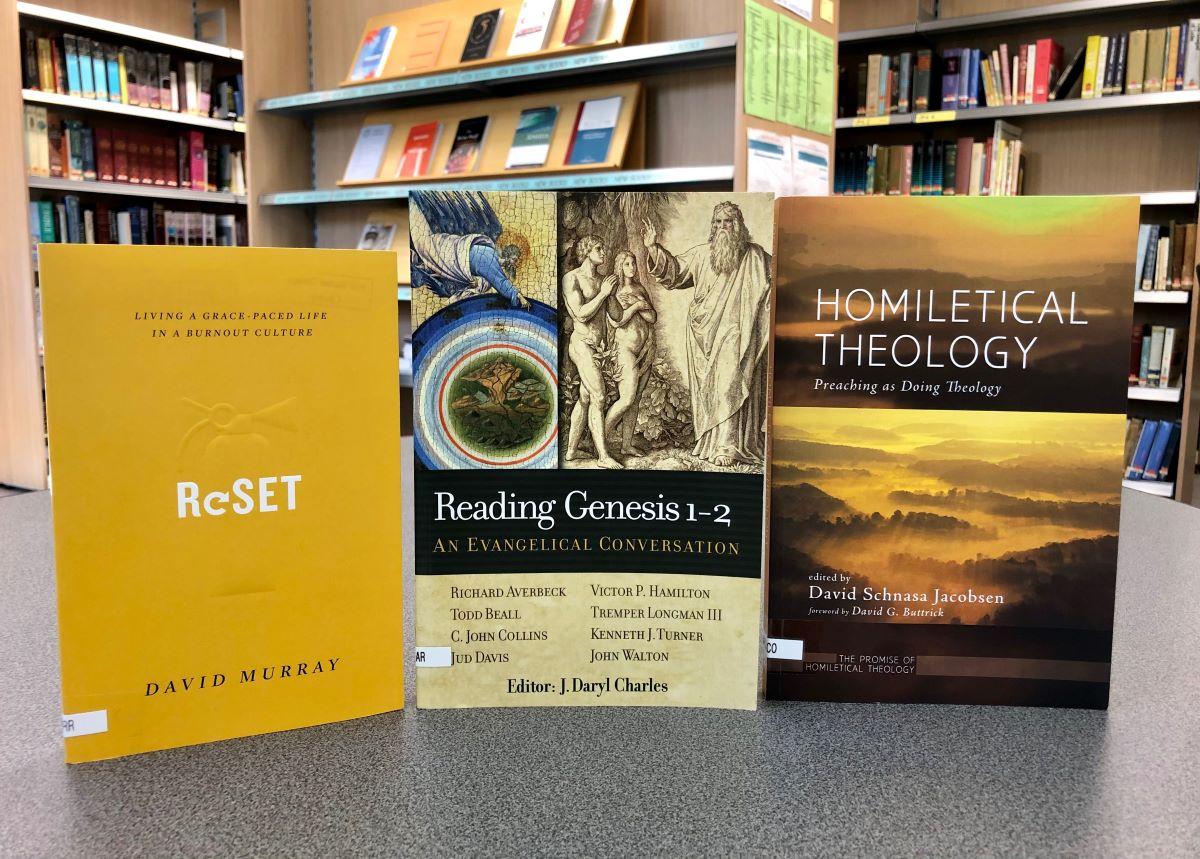New Library Books

By Claire Moorcroft
The following books aren’t necessarily newly published, but they are new to the shelves of our library.
Our students are busy people, our pastors are busy people and you are probably a busy person too. Why not take some time to read this book and reset your heart and mind? David’s wife, Shona, has written an excellent book on the same subject for women called Refresh.
Reset by David Murray (2017)
“How did I get here?” These are the words of many Christian men on the brink of burnout or in the midst of breakdown. They are exhausted, depressed, anxious, stressed, and joyless. Their time is spent doing many good things, but their pace is unsustainable – lacking the regular rest, readjustment, and recalibration they need. But there is good news: God has graciously provided a way for men to reset their lives to a more sustainable pace. Drawing on personal experience–and time spent counselling other men in the midst of burnout—David Murray offers weary men hope for the future, helping them identify the warning signs of burnout and offering practical strategies for developing patterns that are necessary for living a grace-paced life and reaching the finish line with their joy intact.
Learning how to preach with excellence is one of the many things we teach at IBC. We want our students to have a good grounding in God’s word and be able to teach it well to others.
Homiletical Theology: Preaching as Doing Theology by David Schnasa Jacobsen
Karl Barth famously argued that all theology is sermon preparation. But what if all sermon preparation is actually theology? This book pursues a thoroughgoing theological vision for the practice of preaching as a way of doing theology. The idea is not just that homiletics is the realm of theological application. That would leave preaching in the position of simply implementing a theology already arrived at. Instead, the vision in these pages is of a form of theology that begins with preaching itself: its practice, its theories, and its contexts. Homiletical theology is thus a unique way of doing theology–even a constructive theological task in its own right. Homiletician David Schnasa Jacobsen has assembled several of the leading lights of contemporary homiletics to help see its task ever more deeply as theological, yet in profoundly diverse ways. Along the way, readers will not only discover how homileticians do theology homiletically, but deepen the way in which they understand their own preaching as a theological task.
Finally, we want our students to be able to think for themselves, reason clearly and be able to disagree amicably. That’s what these scholars model as they discuss Genesis 1-2.
Reading Genesis 1-2: An Evangelical Conversation by J. Daryl Charles (2013)
Today’s evangelical community faces a multitude of questions about the creation of the cosmos and the beginning of human history, and we look to the Bible for answers. But what do we do with the stories that the book of Genesis presents to us? Reading Genesis 1-2: An Evangelical Conversation brings together the voices of five prominent evangelical scholars who take on the difficult interpretive questions that arise from reading the Bible’s first two chapters. Richard Averbeck, Todd Beall, John Collins, Tremper Longman, and John Walton offer their perspectives in a point-counterpoint style. Reviewing and responding to each other’s work, they write to honour their fellow thinkers even while they note their differences. United by their dedication to the truth while diverse in their approaches to the text, these scholars present their arguments and address their disagreements with courtesy and sophistication. Drawing on a wealth of theological, linguistic, and historical expertise, this collection is characterised by a close attention to the biblical text and a mutual respect that are often sorely lacking in a discussion of origins taking place throughout the evangelical world.





